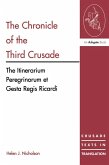In the early hours of 22 June 1941 units of the Wehrmacht began to pour into the Soviet Union. They were embarking on an undertaking long planned by Adolf Hitler. Since the 1920s National Socialist doctrine had largely been determined by an intense hatred and hostility towards not only the Jews but also towards Bolshevism. This ideology, Lorna Waddington argues, had been identified by Hitler and his acolytes as the political poison concocted by the Jews in an attempt to impose, as he saw it, their own tyrannical domination across the globe.
This impressively researched book provides a sustained and detailed analysis of this crucial dimension to Hitler's Weltanschauung, exploring several new avenues, including the little-known activities of the Antikomintern, as well as offering fresh interpretations and new insights on well-documented events. Engaging a wide range of archival sources and supported by a voluminous secondary literature Waddington charts the origins and development of Hitler's crusade against international Bolshevism from his earliest political activities until deep into the Second World War. Focussing on the function of anti-Bolshevism in Nazi ideology, foreign policy and external propaganda, Waddington traces the links inferred by Hitler between the purported forces of 'World Jewry' and revolutionary socialism. She explains why by the mid-1920s anti-Bolshevism had become a central tenet of Nazi ideology and examines the nature and function of anti-Bolshevism as manifested in German external propaganda. We discover how, despite the shifting sands of international diplomacy, Hitler's foreign policy throughout the 1930s and early 1940s remained firmly fixed on the eventual destruction and spoliation of the USSR, the avowed ideological enemy and the epicentre of supposed 'Jewish Bolshevism'.
'Hitler's Crusade' provides the definitive analysis of Hitler's attitude towards Bolshevism, the destruction of which he was still describing in early 1945 as the raison d'être of the Nazi movement.
This impressively researched book provides a sustained and detailed analysis of this crucial dimension to Hitler's Weltanschauung, exploring several new avenues, including the little-known activities of the Antikomintern, as well as offering fresh interpretations and new insights on well-documented events. Engaging a wide range of archival sources and supported by a voluminous secondary literature Waddington charts the origins and development of Hitler's crusade against international Bolshevism from his earliest political activities until deep into the Second World War. Focussing on the function of anti-Bolshevism in Nazi ideology, foreign policy and external propaganda, Waddington traces the links inferred by Hitler between the purported forces of 'World Jewry' and revolutionary socialism. She explains why by the mid-1920s anti-Bolshevism had become a central tenet of Nazi ideology and examines the nature and function of anti-Bolshevism as manifested in German external propaganda. We discover how, despite the shifting sands of international diplomacy, Hitler's foreign policy throughout the 1930s and early 1940s remained firmly fixed on the eventual destruction and spoliation of the USSR, the avowed ideological enemy and the epicentre of supposed 'Jewish Bolshevism'.
'Hitler's Crusade' provides the definitive analysis of Hitler's attitude towards Bolshevism, the destruction of which he was still describing in early 1945 as the raison d'être of the Nazi movement.









